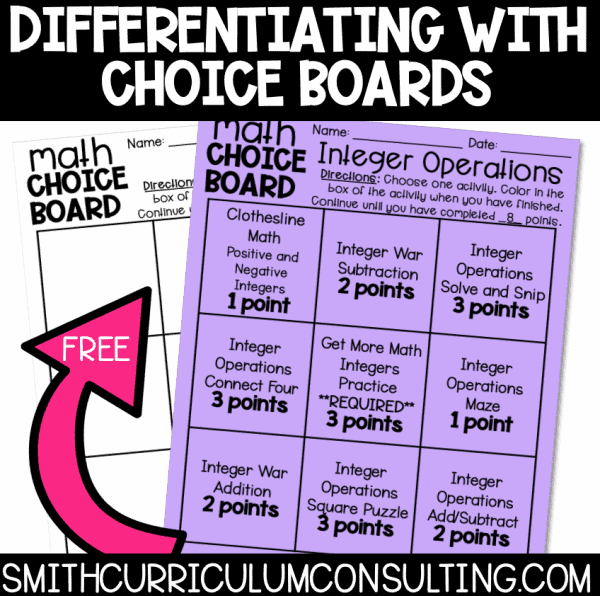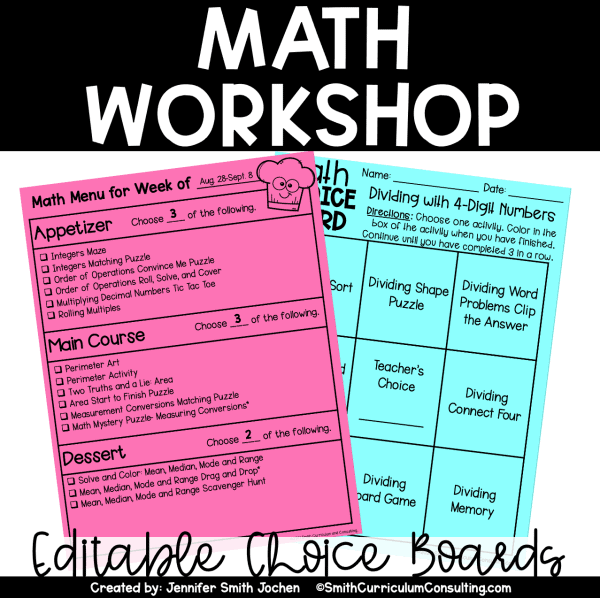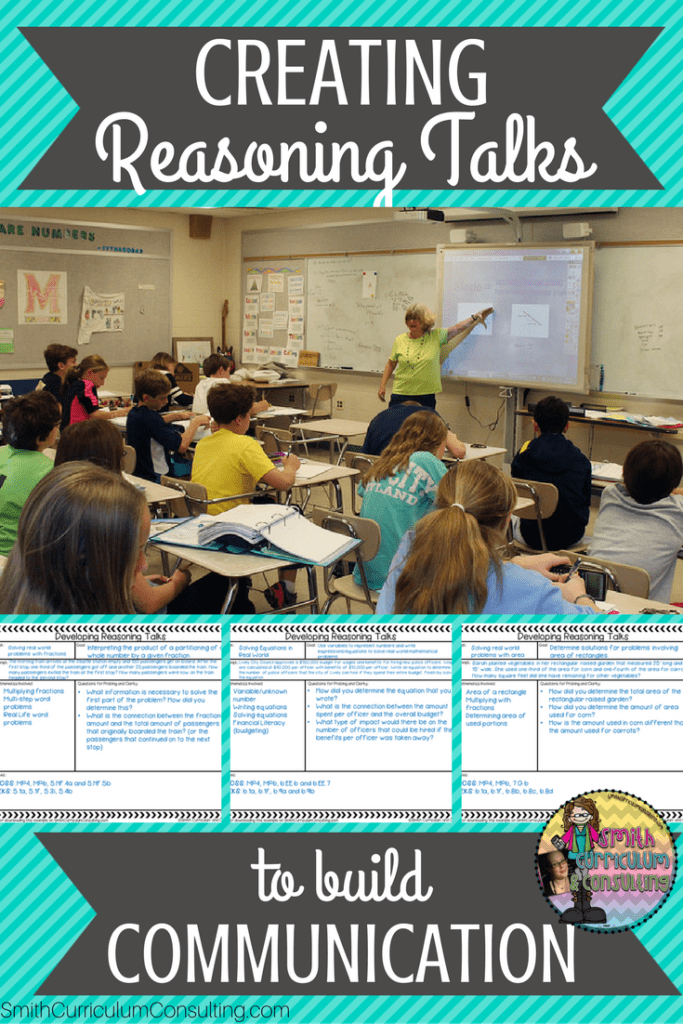 Recently I had Dr. Cory Bennett share with us about Reasoning Talks (Number Talks that focus on Reasoning) and how to use them in the Middle School classroom. So many of your responded asking for more information and I am finally here to share that with you.
Recently I had Dr. Cory Bennett share with us about Reasoning Talks (Number Talks that focus on Reasoning) and how to use them in the Middle School classroom. So many of your responded asking for more information and I am finally here to share that with you.
Some of the highlights I took from Cory’s session at NCTM Annual in San Antonio are that:
- When developing a reasoning talk we must switch from just computational and help our students develop reasoning skills when processing through the problem.
- We don’t always want an answer right away. Most of the time with reasoning talks we truly want students to create a conversation about the methods for solving and WHY they think that.
Developing Reasoning Talks
When we as the facilitator of these reasoning talks sit down to plan them out ahead of time (critical step to do) we must ask ourselves, “How am I going to make connections to what my students are already bringing to the table?”

Understanding the prior knowledge of our students will help us create better, and more engaging, reasoning talks with quality probing and clarifying questions. Think ahead to what answer you are wanting from your students and work backwards to determine the question that you need to ask to get that answer.
Using the template that Dr. Bennett has created for us, these guidelines that I have added (see photo) are to help you in your creation.
Examples of Reasoning Talks
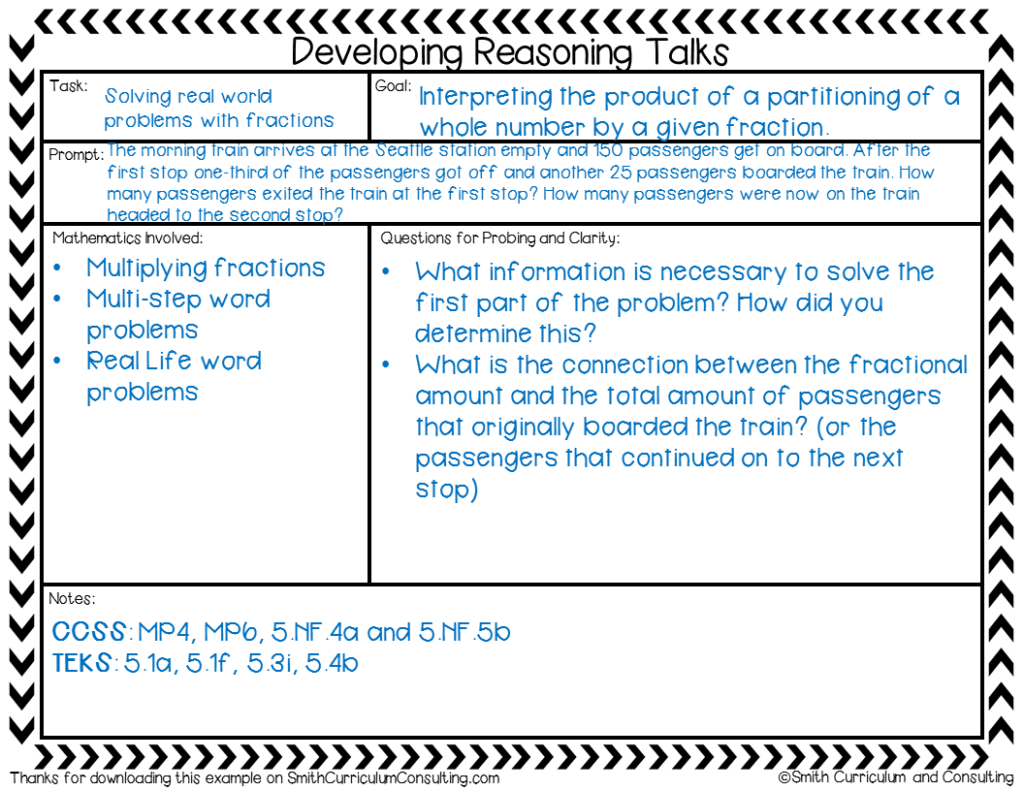
As further example for developing reasoning talks in your classroom, I have developed three different examples for you. The first of which is aligned to standards for solving real world problems that involve multiplying fractions by a whole number.
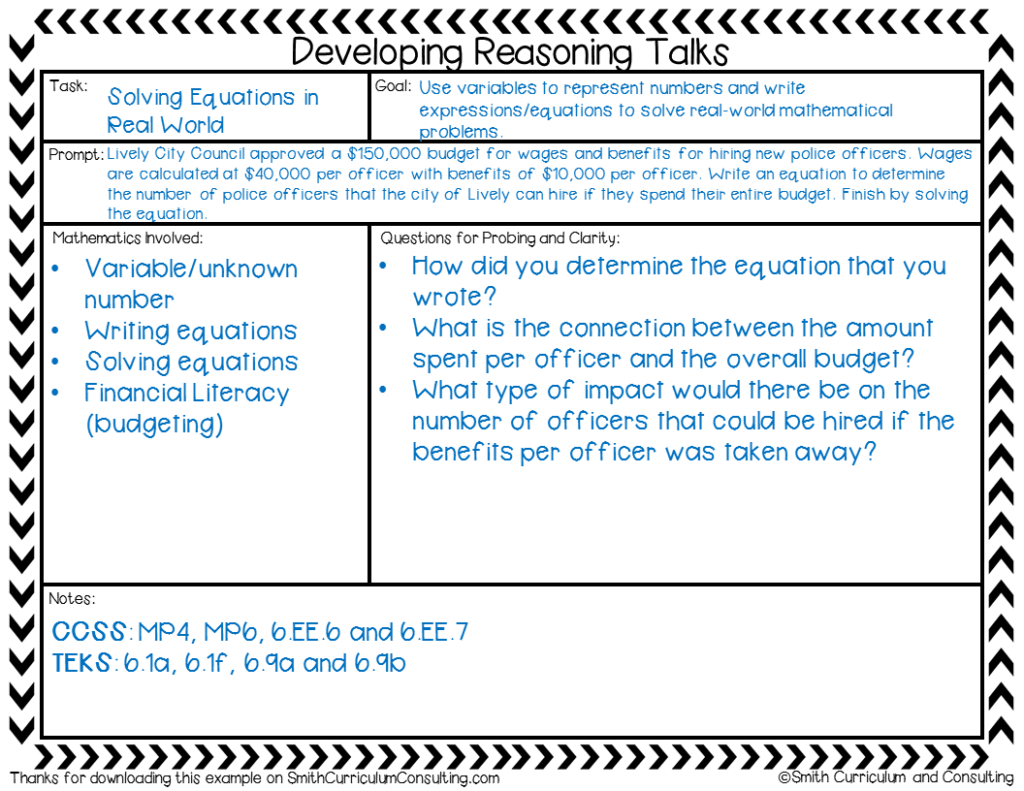
The second example that I have created for you involve solving real world problems that involves using variables to write equations and then solve them based on given information.
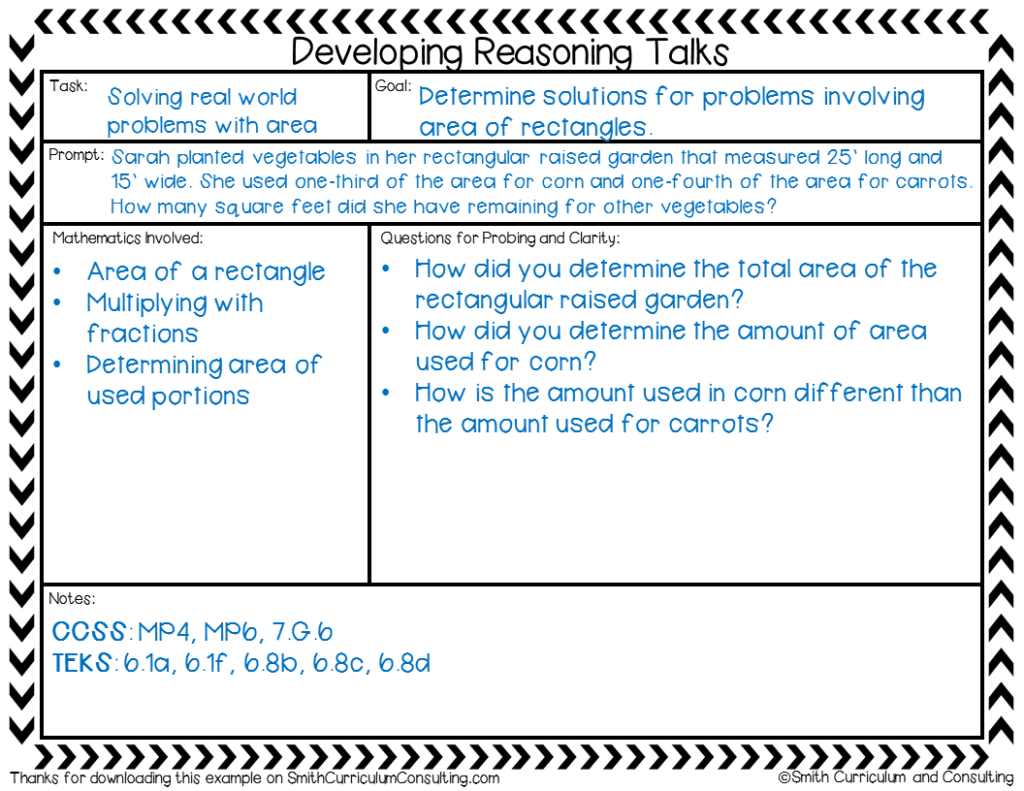
And then the final example that I want to show you involves determining area and then finding fractional portions of that area and what is remaining- talk about MULTI-STEP problem!
And with that I hope that these examples can help you implement Reasoning Talks in your classroom. Remember, building communication about what they are learning is one of the goals as that helps them to explain their thinking behind their math. Spend some time this summer to think about how that you can implement these into your classroom for the coming year and if you have any questions, feel free to ask because I’m here and will listen!


